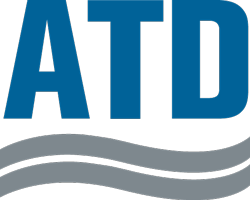Protect Consumers and Small Businesses from Catalytic Converter Theft
Cosponsor the Bipartisan PART Act (S. 2238)
ISSUE
Catalytic converters are attractive targets for thieves due to their precious metals, such as rhodium, platinum and palladium. Criminals can easily steal catalytic converters from unattended vehicles, and since catalytic converters are not readily traceable, there is a lucrative market for these stolen parts. These thefts are costing millions of dollars to businesses and individual vehicle owners alike and continue to be a significant problem. Heavy-duty diesel trucks are also vulnerable to theft of their emission control devices known as diesel particulate filters (DPF) and diesel oxidation catalysts (DOC), which contain the same precious metals that attract thieves to steal catalytic converters. Members of Congress should cosponsor the “Preventing Auto Recycling Theft Act” (S. 2238), which would help law enforcement combat the theft of emission control devices by marking these parts and creating a more transparent market that deters their theft.
BACKGROUND
As required by the Clean Air Act, catalytic converters reduce toxic emissions from internal combustion engine vehicles using precious metals to remove toxic elements from the exhaust gases. Like catalytic converters in light-duty vehicles, DPFs/DOCs use precious metals to reduce toxic emissions from heavy-duty vehicles. The price of these precious metals rose sharply during the pandemic, contributing to a sharp increase in theft. Stolen catalytic converters can garner anywhere from $20 to $350 on the black market, and DPFs/DOCs can get up to $700, with the replacement cost to vehicle owners averaging over $2,500. Stolen emission control devices are difficult to trace since they lack identification numbers tied to the vehicle, which hampers law enforcement from proving ownership and prosecuting theft.
Thefts have also turned violent, with high-profile tragedies underscoring the urgency of addressing this issue. While several states, such as Minnesota and North Carolina, have enacted laws to address the issue, this crime frequently involves trafficking stolen parts across state lines and a federal framework is needed to aid the efforts of local law enforcement.
The PART Act addresses this crime by: 1) requiring new vehicles to have unique identifying numbers, a VIN or other traceable number, stamped on emission control devices at the time of assembly; 2) establishing a $7 million grant program to mark emission control devices of vehicles already on the road at no cost to vehicle owners; 3) increasing record keeping requirements for purchasers; and 4) establishing a federal criminal penalty for the theft, sale, trafficking or known purchase of stolen emission control devices of up to five years.
KEY POINTS
- The PART Act addresses theft of emission control devices (DPFs/DOCs) for heavy-duty trucks as these devices contain the identical precious metals sought by thieves. Law enforcement organizations have said that they expect to see DPF/DOC theft rise over the next year.
- DPFs/DOCs are not currently required to be marked with a VIN or number traceable to a VIN; however, some manufacturers already utilize traceable serial numbers. Law enforcement has stated that including such tracing in the legislation is critical to help deter the theft and trafficking of stolen emission control devices since it would make it easier to prosecute criminals.
- The PART Act provides a national framework to help law enforcement combat emission control device theft. Since this crime frequently involves trafficking stolen parts across state lines, a federal standard is needed to help law enforcement.
The PART Act (S. 2238) was reintroduced in the Senate by Sens. Amy Klobuchar (D-Minn.) and Bernie Moreno (R-Ohio). Reps. Jim Baird (R-Ind.) and Betty McCollum (D-Minn.) are expected to introduce companion legislation soon. NADA and 119 other organizations sent a letter to Congress supporting passage of the PART Act last year. This Congress, the bill includes some non-controversial revisions to improve clarity and enhance enforcement. Members are urged to cosponsor the PART Act to help curb the growing national problem of emission control device theft.
Contacts

Resources
- Bill Text: H.R. 621, "PART Act"
- Bill Text: S. 154, "PART Act"
- Industry Letter to House and Senate Commerce Committees in Support of H.R. 621/…
- Press Release: NADA Applauds Reintroduction of Legislation to Combat Catalytic …
- Press Release: Baird Leads Bipartisan, Bicameral bill to address costly catalyt…
- Press Release: Klobuchar, Braun, Wyden, Vance Introduce Bipartisan, Bicameral L…
